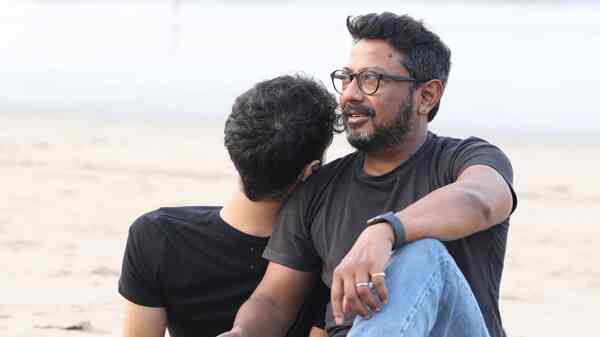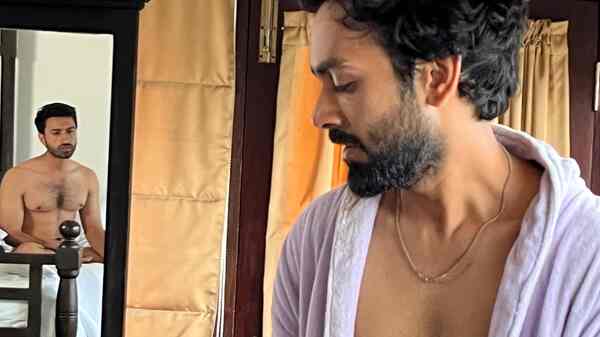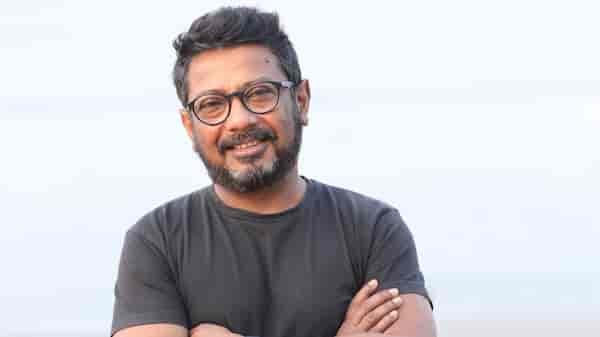Pride Month Exclusive | Onir: Mainstream Bollywood films like Badhaai Do still celebrate fake marriages and that's a tragedy
The director opens up about his films and gay rights and puts light on the progression of LGBTQIA+ in mainstream Bollywood films.

Last Updated: 01.10 PM, Jun 10, 2023
Onir’s new film Pine Cone was screened at the KASHISH Mumbai International Queer Film Festival this year. The director believes that the film coincides with a series of movements through which gay rights are celebrated in the country. “It is such a lovely coincidence that Pine Cone screened at this festival in Pride month and soon Supreme Court will give a verdict on marriage equality in India. It is a time when gay/ queer rights are being celebrated,” he says. In a candid interview with OTTplay, Onir opens up about his films and gay marriage rights in India and puts light on the progression of LGBTQIA+ in mainstream Bollywood films. Read on…
Let’s start with Pine Cone. Tell us about it…
Pine Cone is a film that shows queer love from a queer gaze. It talks about queer desire. No Indian film has shown gay love and desire. Indian films don’t celebrate desire. It rather shows desire in a sleazy way. Today I was doing an interview and I showed that person the trailer. And their reply was, ‘Oh yeh to bahut hi bold hai. Aapne kiss dikha diya.’ And I was like, ‘OK, in 2023 people need to be bold to show a kiss?’ I have shown it before. People often say I am a rebel but I am not a rebel. I am just a loving person.

The character, Sid, navigates through love and how society reacts to it. Also, this is for the first time the lead actor Vidur Sethi is a queer man playing a queer character in a mainstream Bollywood film. It is important that not just the writer, director, and part producer, but the lead actor also is from the community. Hence, there is a strong sense of belonging there.
As a director, how important do you think it is for a gay actor to play the role of a gay character?
In an ideal world, a trans person should play a trans role. However, in terms of sexuality, a queer actor, gay or lesbian artiste should be able to play a gay/ lesbian character and a straight role and vice versa. I was happy to cast a queer actor. When I approach a straight actor, one of the things I often hear is, ‘Onir, but I have done a gay role’. For them, it is almost like a homogeneous gay character. The basic understanding that there is nothing like a gay role goes missing. Not everybody is the same. It is about different stories and different lives. They might have done 50 straight roles but they never say, ‘I’ve done a straight role’. Also, when a straight actor plays a gay character it appears as a significant role. However, if a gay actor or actress plays a character of a straight person, it is normal. We are much more accepting and secure about our identity whereas straight people are not as secure. They would look at the level of intimacy and say we are comfortable with this scene with a woman but not with a guy. On the other hand, as queer people, we are much more empowered to tell a straight love story (as a director) or portray a straight character (as an actor). We grew up accepting straight people without any inhibition. That is not the case with straight people. They are desperately trying to understand us. And they find it so difficult to understand us that they have to do inclusivity talks, diversity talks, Pride marches, etc. And we have to do panel discussions just to tell that we are there. Maybe we have some differences in terms of sexual preferences. We, on the other hand, don’t need to undergo any training or workshop to understand straight people. I don’t really understand what is this big inability to understand us! When straight filmmakers make a film on queer characters they need an LGBTQIA+ consultant. When I was making Kuchh Bheege Alfaaz, I did not need a consultant to make understand straight people. So I think we are much more accepting. It is about patriarchy and the male gaze. Why do you think women have to do so much to make people understand their rights? Men are insecure about losing power. They need help (laughs) we don’t need help.
From My Brother… Nikhil in 2005 till Pine Cone – how do you see the LGBTQIA representation in the Indian cinema, especially the mainstream Bollywood cinema…
Over time, especially after decriminalising homosexuality, changes took place. Now everybody is like ‘Kuch LGBT karna hai’. Of course, there is more visibility and there is more press. But more often it is taken from a more heteronormative gaze. And it is like a heteronormative world accepting us and we feel a little joyous in the end because we are being accepted. This joy for them is hardly for being better human beings but it is more about doing us a big favour by accepting us. We really don’t need this stamp of approval. Moreover, since these many of these films are populist and want to reach out to a wider audience, most of the time they become problematic. Being accepted in the heteronormative world becomes the soul of the film. I’ll give you an example. In 2005, when I did My Brother... Nikhil, this character Nikhil walks out of his house and he walks out of a fake marriage. He refuses to ruin someone else’s life because he is gay. In the end, he does not beg to be taken back. His parents come to him and accept him. And then I see a film in 2020 in which a lesbian character who comes out and celebrates finally goes back to a fake marriage just to fit into society. For me, that is a tragedy. Why are we glorifying this all’s well that ends well when you are making invisibility to be ok. Why are we telling people that if you want to adopt a child you will have to marry? Women can adopt a child anyway. How is that ok? And that film becomes the most celebrated film! Also, just because you are gay it doesn’t mean that you understand it. There are a lot of women who would clap about Kabir Singh. Similarly, many people found Badhaai Do cute and lovely. Many people from the industry found it difficult to celebrate My Brother… Nikhil or I am. Badhaai Do, on the other hand, suddenly was celebrated by the industry as a pathbreaking film. I did it in 2005…
But Onir, it is always said that My Brother… Nikhil was way ahead of its time?
Even today if Pine Cone is released people will say it is way ahead of its time. It is not that I am ahead of time. These people are behind on time. They are taking baby steps to move forward but my life is not taking baby steps to live. I am living my life. That’s their problem.
Tell us about your journey as an individual in this country. Also, tell us a little about the community. After decriminalisation, is it easier to come out or lavender marriage is still prevailing like before?
My family is here and I am very close to my family. They have loved me, accepted me, and celebrated me. Like everyone else, my life is not perfect also. I have vacuums. Until 2018, before decriminalisation, a lot of people feared coming out. Being a filmmaker it is not easy for me to get into a relationship. I have a lot of love in me. However, over the years, your identity as a filmmaker takes over. And there are times you don’t know why a person wants to be with you – if they want to be with you for the person you are or they want to be with you because you are a filmmaker. And since I am very open about my identity a lot of people fear being with me because they would be identified as gay and they don't have half the courage to come out. I lived this open life for too long to now care. I am tired of people not having the courage.

In terms of the community, since decriminalisation, a lot more people have come out. We must also realise that the more we reclaim our spaces the more resistance we see against the community as well. It is very similar to the women's rights movement. The more women reclaim their space the more aggression we see against women. It is the stigma of the insecure patriarchy. Just imagine if a child gets married to their gay partner then the property rights get shifted to another family. They don’t want to lose that money. This country now doesn’t have a problem with sex being decriminalised but it has a problem that love is getting legitimised. More and more people must say no to fake marriages. You will see so many queer couples getting married.
In your planned film We Are, you intended to show the life of an Army officer and you were denied an NOC. Did you ask why and did you get an answer?
I was very very sad because it was based on the life of a major. It is an army man’s love story. The MoD (Ministry of Defence) just said that we can’t do it and they did not give any reason. They refused to meet me. Then Varun Gandhi brought it up in Parliament. Then it was said that it will a threat to national security. But none of them spoke to me. My question to this is how does it affect security? How does an army officer’s service becomes null and void? Around 32 countries, out of which many countries are in ties with India, have legitimised and regularised LGBTQIA+ rights there. Are they any lesser than Indian Army? Many security breaches happened because of the honey traps between men and women. I was very sad that I could not make this film.

 Premium
Premium